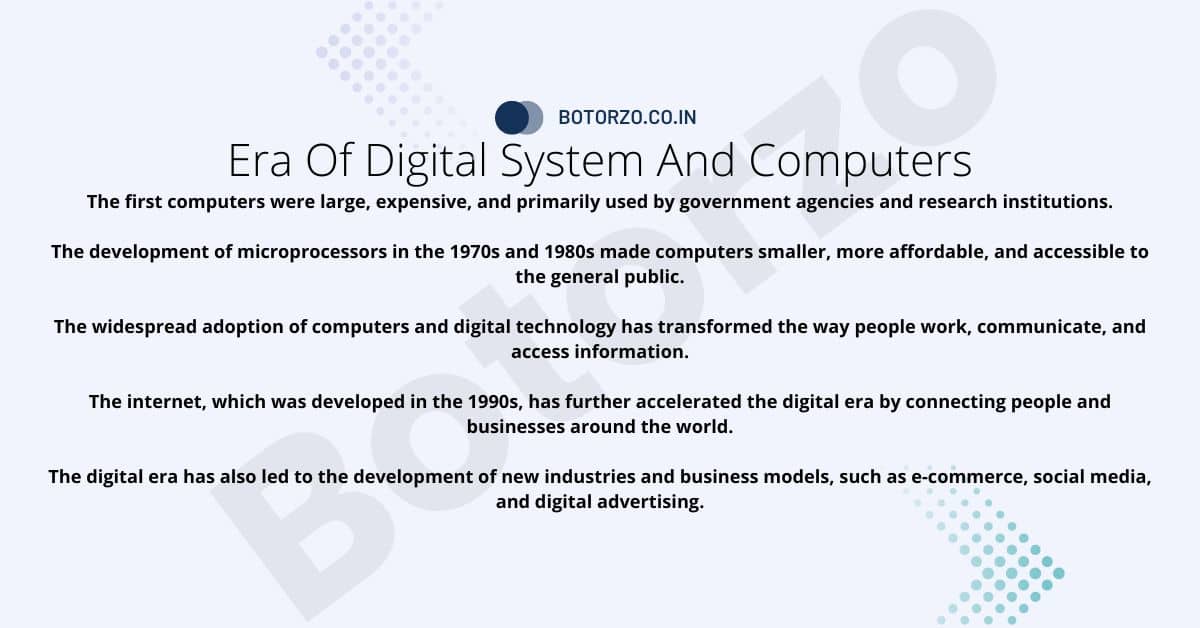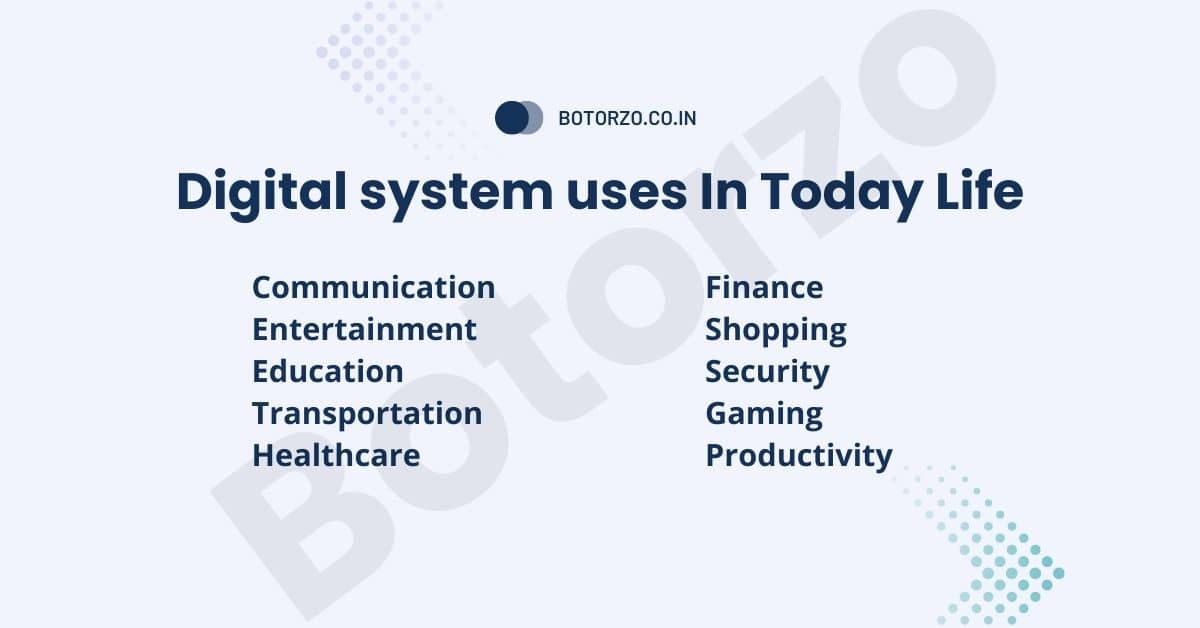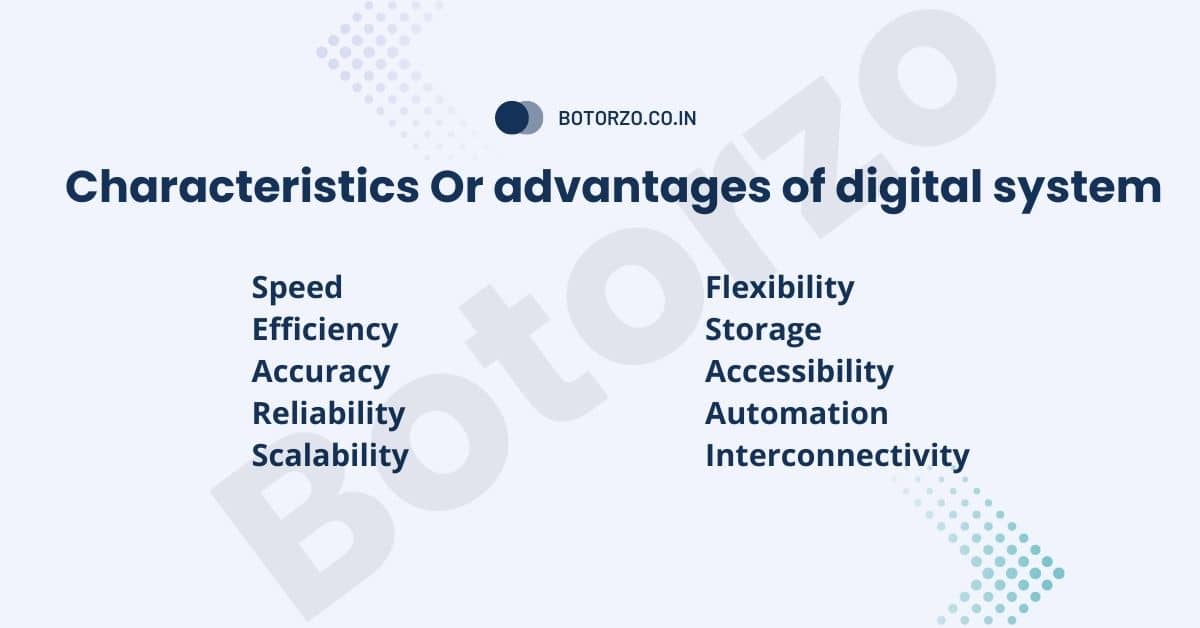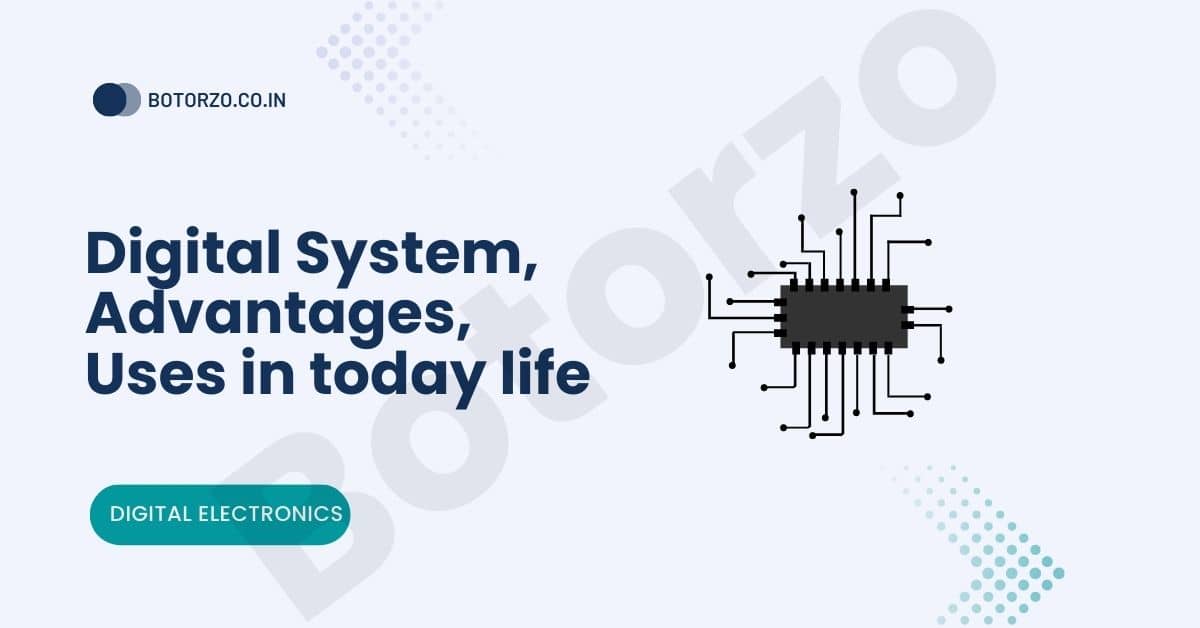The current tech era is considered to as the “digital system age” because to the significant importance that digital technologies play in daily life. Communication, business transactions, traffic control, space navigation, medical care, weather monitoring, the Internet, and many more commercial, industrial, and scientific activities all require digital systems.
In addition to digital computers, we also have digital telephones, digital television, digital versatile discs, digital cameras, portable gadgets, and so on. The universality of the digital computer is its most remarkable feature. It is capable of acting in accordance with a set of instructions known as a programme that use inputted data. The user can modify and alter the software or the data in accordance with their own requirements.
General-purpose digital computers can carry out a wide range of information-processing tasks across a broad spectrum of applications because to their versatility.
Era Of Digital System And Computers

The ability of digital systems to represent and work with distinct pieces of information is one of its key characteristics. Discrete data can be found in any set with a limited number of elements. The 26 letters of the alphabet, the 52 playing cards, and the 64 squares of a chessboard are all examples of discrete sets. Numerical calculations were performed on early digital computers.
The discrete components in this calculation were the digits. The phrase “digital computer” was born out of this application. In a digital system, the geometrical elements of inflection are represented by physical quantities, or signals. The most typical electrical signals are voltages and currents. The circuitry that implements these signals is mostly made up of electronic components called transistors.
Because the signals in the majority of early electrical digital systems only employ two discrete values, they are said to be binary. The two values of a binary digit, or bit, are 0 and 1. Binary codes are collections of bits that are used to represent discrete informational items. For instance, the decimal numbers 0 through 9 are represented in a digital system using a four-bit code (e.g., the number 7 is represented by 0111 ).
digital system uses In Today Life

To process, store, and transfer data, digital systems require digital circuits and digital signals. Computers, cell phones, digital cameras, and digital watches are a few typical instances of digital systems.
Digital logic gates, such as AND gates, OR gates, and NOT gates, which carry out logical operations on digital signals, are the building blocks of digital circuits. Binary digits, or bits, that can only be either 0 or 1 are used to represent these signals. To carry out sophisticated operations like arithmetic, logic, and memory functions, digital circuits can be integrated in a number of different ways.
Digital signals are also utilized to communicate between equipment. Information is turned into digital signals in digital communication, which may be transported across vast distances without losing their integrity. The internet, cell phone networks, and satellite communication systems are examples of digital communication systems.
Overall, digital systems have several advantages over analog systems, such as increased precision, reliability, and adaptability. They have transformed many aspects of modern life, from entertainment and communication to healthcare and production.
characteristics Or advantages of digital system

Digital systems have several characteristics that distinguish them from analog systems. Some of the key characteristics of digital systems include:
Discrete signals
Discrete signals are used in digital systems and are represented by a series of binary digits (0 and 1), or bits. Because each bit can only have two possible values, digital signals are more easier to handle and process than analogue signals.
Accuracy
Because digital signals are highly accurate, they may be transferred and processed without sacrificing quality or integrity. Because the signal is either on or off, with no in-between values, mistakes caused by noise and interference are eliminated.
Storage
Digital systems have the ability to store vast volumes of data in a very small amount of space. This is due to the fact that digital data is stored as a series of 0s and 1s that can be readily encoded and decoded.
Flexibilty
Digital systems are extremely adaptable and may be easily reprogrammed to fulfil a variety of functions or jobs. As a result, they are perfect for applications that necessitate regular updates or changes.
Reliability
Digital systems are extremely reliable and can function for extended periods of time without deterioration in performance. They are also less prone to wear and tear than analogue systems, which can be influenced by temperature, humidity, and vibration.
Compatibility
Because digital systems are interoperable with many different devices and technologies, they are simple to integrate into existing systems and networks.
Overall, digital systems offer many advantages over analog systems, which is why they have become the dominant technology in many areas of modern life, from communication and entertainment to healthcare and manufacturing.
reasons why products are made with digital circuit
Commercial items are built with digital circuits according to some basic rules.
Most digital devices can be programmed, much like a digital computer. The underlying hardware of a programmable device can be used for a variety of applications by altering the program.
Because of developments in digital integrated circuit technology, the cost of digital devices has dramatically decreased. As the number of transistors that can be placed on a piece of silicon rises, complicated functions are produced, costs per unit fall, and the price of digital devices continues to drop.
The performance rate of equipment built with digital integrated circuits can reach 100 million operations per second. Error-correcting code can be used to make digital systems run with a high degree of reliability. The digital versatile disc (DVD), which records digital information representing video, audio, and other data without losing a single bit, is an example of this tactic.
Any errors in the digital information on a DVD can be automatically detected and fixed by looking at the coding in each digital sample before it is played again.
Frequently Asked Questions
What is a digital system?
A digital system is an electronic device that manipulates and represents data using binary numbers (bits).
What are the advantages of using digital systems?
Higher accuracy and precision, Greater flexibility and programmability, Lower noise and distortion, Easier storage and retrieval of data, Greater reliability and stability
What are the basic components of a digital system?
Input devices, Output devices, Processors, Memory, Storage devices, Communication devices
What is Boolean algebra?
Boolean algebra is used in digital systems to design and analyze circuits.
Check our Sponsered Domain Vidyapedia.in And UietMdu.in


1 thought on “Digital System, Advantages, Uses in today life”
Comments are closed.